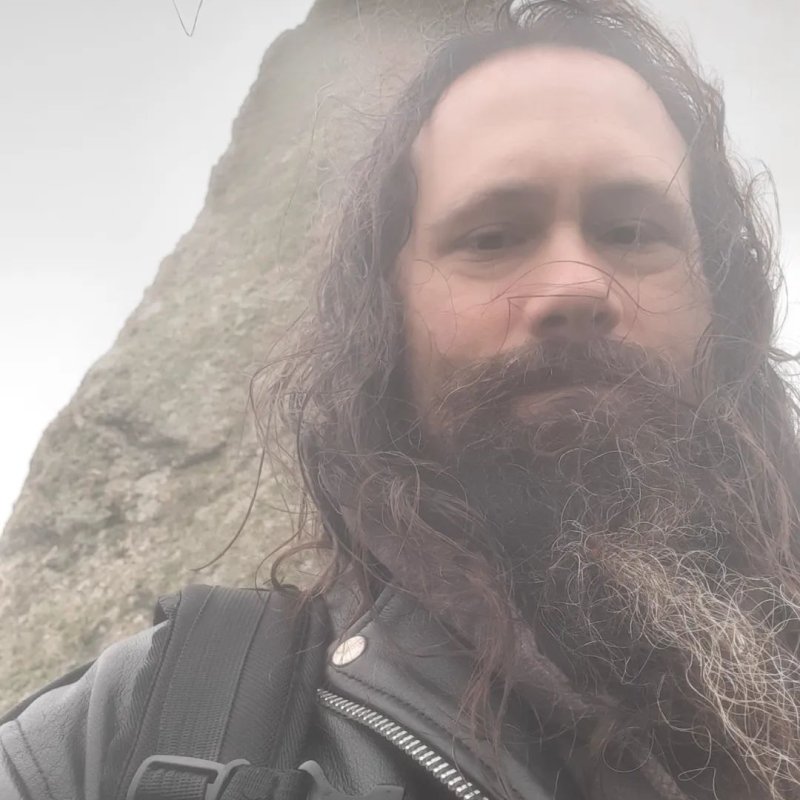Dr Jeff Howard
Associate Professor of Games and Occulture
External Links
Qualifications
Qualifications
| Year | Qualification | Awarding body |
|---|---|---|
| 2007 | Ph.D. | University of Texas, Austin |
| 2002 | M.A. | University of Texas, Austin |
| 2000 | B.A. | University of Tulsa |
Research Interests
Research interests and expertise
Research interests and areas for supervision: game design, worldbuilding, systems design, quest design, narrative design, magic systems, horror, the Gothic, heavy metal
My research interests fall under the broad headings of worldbuilding and systems design. More specifically, I study the occult and game design, with an emphasis on ways that designers can create awe and mystery through deep systems hidden beneath seemingly simple surfaces. My research interests form an energizing triad of game systems design, narrative design, and mythology-infused worldbuilding. I explore these ideas through scholarly, theoretical research as well as creative practice, each of which reflects and complements the other.
Currently, I am working on a sample chapter for a manuscript about ways to use heavy metal, understood broadly as the energy of anti-cosmic rebellion, as an inspiration for video games. This manuscript is for the MIT Playful Thinking series and has been greenlit by the group’s external editorial board, to be passed onto the MIT internal editorial board when it is completed. As part of this research, I organised the first MetalCade at the Game Developer’s Conference in March 2019, a meeting of metal-inspired game developers to demo and network.
The foundations of my research are a previous book, Game Magic, which in turn builds upon the structure that I created in my first book, Quests: Design, Theory, and History in Games and Narratives (AK Peters 2008). Game Magic: A Designer’s Guide to Magic Systems in Theory and Practice (AK Peters/Taylor & Francis 2014) is a guide for designing and developing magic systems. Magic systems are combinations of symbols and rules used to rigorously simulate supernatural abilities within a given game world. The book is a spellbook or grimoire, with pseudocode recipes illustrating particular examples of creating a system. Game Magic provides an in-depth understanding of the history and structure of magic to make games richer and deeper. The book shows how to set up tables of correspondences and spell components as well as how to write programming code integrating these components as part of game mechanics. It also illustrates how to divide a simulated world into domains of influence (such as alteration, conjuration, and necromancy) and how to use specific rule systems to simulate powers within these realms.
I have presented the findings from my books and theoretical research at prestigious conferences in the fields of game design. In 2017, I presented “Force and Fire: Making Your Game More Metal” to an audience of professional game designers at the Game Developer’s Conference in San Francisco, the largest game development event in the United States. In 2012, I presented at the Game Developer’s Conference Online, where I spoke about “Occult Game Design: An Initiation into Secrets and Mysteries.” This presentation became the basis of a piece entitled “Howard’s Law of Occult Design,” published in the anthology 100 Principles of Game Design. In addition to these presentations to the broader game design community at large, I have given multiple presentations at Dakota State University’s Workshop on Integrated Design in Games (IDiG), an industry and academic conference for which I was also the program committee chair.
My most recent book has evolved out of my own practice of game development, through an ongoing project called Arcana: a game about performing occult rituals in a magical theatre to unlock the mysteries of the multiverse. The design and development of Arcana has been a long and winding road, the history of which is chronicled in this video, made by Canadian hall of fame game designer Denis Dyack. https://www.youtube.com/watch?v=PHLWwoWnyYE&feature=youtu.be In the same way that a flight simulator seeks to provide the most detailed and realistic experience of flight, Arcana seeks to provide the most authentic and immersive experience of magic. Arcana is a long-term endeavor, intended as a multi-decade project along the lines of Dwarf Fortress. I coordinate an interdisciplinary and international team, including lead programmer Steve Graham, artist Thomas Vanhuffel, and Casio-sponsored musician Kyle Morrison Lovely. The game’s current state as of 2020 can be seen in this trailer made by Kris Maxwell. https://www.youtube.com/watch?v=YVy9k2gYFgw
Research Topics
- game design
- worldbuilding
- systems design
- quest design
- narrative design
- magic systems
- horror
- the Gothic
- heavy metal
Research Outputs
Publications and research outputs
-
Howard, Jeff
(2021), Quests: Design, Theory, and History in Games and Narratives. 2nd Edition., CRC Press, Boca Raton, Florida, ISBN: 9780367686048, Item availability may be restricted. -
Howard, Jeff
(2014), Game Magic: A Designer's Guide to Magic Systems in Theory and Practice, CRC Press/Taylor and Francis, Boca Raton, Florida, United States, ISBN: 1138427756, Item availability may be restricted. -
Howard, Jeff
(2009), Quests: Design, Theory, and History in Games and Narratives, AK Peters/CRC Press, Boca Raton, Florida, United States, ISBN: 1138427942, Item availability may be restricted.
-
Howard, Jeff
(2025), Playful Occultism, In: Invited Seminar (Popular Culture and Fantasy series and Esotericism series), February 12, Malmö University -
Howard, Jeff
(2024), "Folk Magic and Folk Games: The Occult Power of Play", In: Viktor Wynd Last Tuesday Society (Invited Talk), January 23 2024, Online -
Summerley, Rory
Wilbraham, Che and Brown, Douglas, (2023), Tandem Analysis and Other Methodologies Inspired by Interdisciplinary Approaches, In: Nordic DiGRA 2023, 27-28 April 2023, Uppsala, Sweden, (Submitted), Item availability may be restricted. -
Howard, Jeff
Summerley, Rory and Mitchell, Alexander, (2023), Playful Tarot: Adaptations of Tarot In, Through, and Across Games, In: Proceedings of the 9th Biennial Conference of the European Society for the Study of Western Esotericism, June 26-28, 2023, Malmo, Sweden -
Mitchell, Alexander
Scott, Michael, (2023), Peer Evaluation in Group Projects: Insight into Effective Student Critique and Feedback, In: AdvanceHE Assessment and Feedback Symposium, 7th November 2023, Reading, UK, (Submitted) -
Howard, Jeff
(2023), "The Left Hand Path of Game Design", In: Berlin Occulture 2023, October 19-23 2023, Berlin -
Howard, Jeff
(2023), "Ludomancy: Games as Occult Practice in Between States", In: Trans-States: The Art of Deception, September 9-10 2023, Northampton -
McDonald, Brian
Brown, Douglas, (2022), The Kerdroya Postmortem: Navigating the Labyrinth of Co-creative Design and Collective Vision, Athens, Greece -
Howard, Jeff
(2017), Force and Fire: Making Your Game More Metal, San Francisco -
Howard, Jeff
(2012), Occult Game Design: An Initiation into Secrets and Mysteries, In: Game Developer's Conference (GDC) Online 2012, October 2012, Austin, TX, U.S.
-
Patterson, Steve and Howard, Jeff
(2024), To Reveal the Hidden Kingdom of Eld, In: Praxis-Knowledge, Research Network for the Study of Esoteric Practices (RENSEP), Amsterdam, Netherlands, 1 (2024), pp. 1-19, ISSN: n/a -
Howard, Jeff
(2024), Key to the Mysteries, In: The Enquiring Eye of the Witchcraft Research Centre, Museum of Magic and Witchcraft, Boscastle, ISSN: N/A, Item availability may be restricted. -
Howard, Jeff
(2015), "The Occult in Video Games: An Interview with Jeff Howard", In: Dark Discoveries, Journalstone, San Mateo, California, U.S., 1 (32), pp. 88-90, ISSN: 9781942712558
-
Howard, Jeff
(2012), "Howard's Law of Occult Game Design" (section) in 100 Principles of Game Design (book), In: 100 Principles of Game Design, New Riders, New York, ISBN: 321902491
-
Howard, Jeff
Poole, Simon, (2025), Revenant: Critical and Creative Studies of the Supernatural, Issue 12, Revenant: Critical and Creative Studies of the Supernatural, Falmouth, Cornwall, Spring 2025 (12), ISSN: 2397-8791
Teaching
Areas of teaching
- Game Design
- systems design
- worldbuilding
- narrative design
- mythology
Courses taught
- BA(Hons) Game Development
- Game Design MA
Business Engagement
Consultancy and facility services
Game design and worldbuilding consultant at Apocalypse Studios


